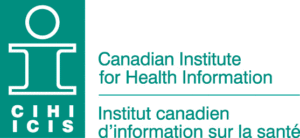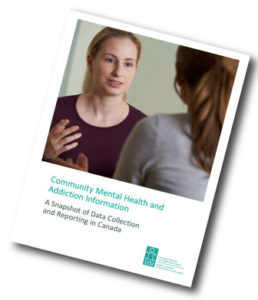 An independent, not-for-profit organization that provides essential information on Canada’s health systems and the health of Canadians, the Canadian Institute for Health Information (CIHI), is taking a closer look at the mental health and addictions sector.
An independent, not-for-profit organization that provides essential information on Canada’s health systems and the health of Canadians, the Canadian Institute for Health Information (CIHI), is taking a closer look at the mental health and addictions sector.
“As recognition of the significance of mental health and addictions to the overall health of Canadians grows, so has the interest among our stakeholders in getting timely, accurate, and actionable information on fundamental questions related to the quality of mental health services,” says Nawaf Madi, Manager for Rehabilitation and Mental Health at CIHI.
“Historically, we have relied on administrative hospital data, with all their inherent strengths and limitations, to address these requests,” he says. “However, expectations now are that we provide richer, mental health-specific information that can be used for care planning, system management and policy decisions in the sector.”
As part of CIHI’s 2016-2021 strategic plan, the organization is focusing on the needs of priority populations, including people living with mental health and addictions issues.
Currently, there are two sources of hospital mental health and addictions data that CIHI holds: the Hospital Mental Health Database and the Ontario Mental Health Reporting System (OMHRS).
The Hospital Mental Health Database includes administrative data on all inpatient mental health hospitalization – both in general and speciality psychiatric facilities – in Canada.
OMHRS, based on the Resident Assessment Instrument Mental Health assessment, has been the repository for hospital mental health data for all adult mental health beds in Ontario since 2005. OMHRS is a comprehensive “purpose-built” instrument that collects data on a number of indicators, such as information about a patient’s mental and physical health, social supports and service use, among other related indicators.
“With growing interest, there are new expectations the data can help do more to paint a picture of the full spectrum of services and the individual`s journey across that spectrum,” Madi says. “This requires that we look at data integration strategies as well as opportunities to fill significant data gaps.”
 To this end, in March 2017, CIHI released Community Mental Health and Addiction Information: A Snapshot of Data Collection and Reporting in Canada.
To this end, in March 2017, CIHI released Community Mental Health and Addiction Information: A Snapshot of Data Collection and Reporting in Canada.
The report explores data and information gaps relating to community mental health and addiction services and considers:
- Opportunities to promote collection of comparable pan-Canadian community mental health and addiction services information; and,
- Enhancement of the availability of data, information and reports to further inform system-level management • of these services.
Work at CIHI is currently underway to develop and implement a system to capture information on mental health services that children are receiving from the Ontario Ministry of Children and Youth Services (MCYS) and its agencies.
Like the OMHRS, this new system will provide information to guide decisions about frontline care and system management.
“This partnership with MCYS opens new possibilities for understanding and meeting the mental health needs of children and their families,” Madi says. “Among other things, it also allows for a more ‘upstream’ perspective to inform early mental health intervention strategies for children who may later require those services in adulthood.”
Zahir Din is a Policy Analyst at the Canadian Mental Health Association, Ontario.
